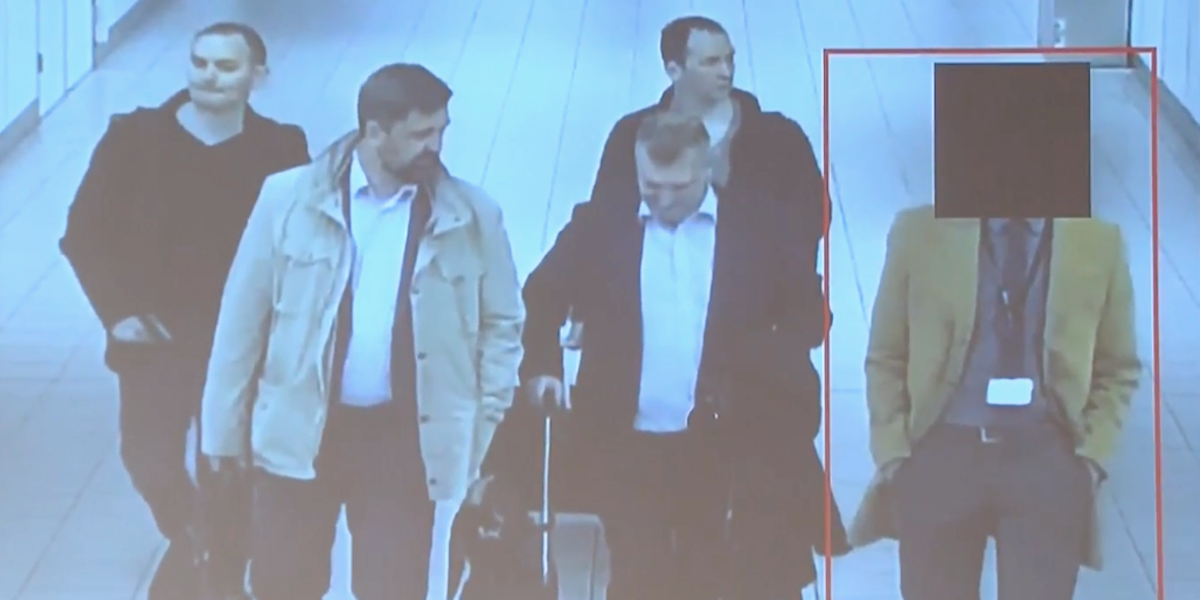- The Netherlands accused four Russian agents of trying to launch a cyberattack into the world’s chemical weapons watchdog.
- The Organisation for the Prohibition of Chemical Weapons (OPCW) was investigating the nerve agent poisoning of former Russian spy Sergei Skripal in England, and a chemical attack in Syria.
- The four men failed to hack the OPCW and were caught red-handed, the Dutch government said.
- Dutch officials linked the suspects to the GRU, Russia’s intelligence service, after finding that one of their cellphones pinged near the GRU building and another took a cab near the GRU.
- Russia denied the allegations, and called the Dutch announcement a “diabolical cocktail” of disinformation.
Four Russian intelligence agents were caught trying to hack the global chemical weapons watchdog while it was investigating their country, Dutch authorities said on Thursday.
The suspects traveled to the Netherlands this April to try to launch a cyberattack on Organisation for the Prohibition of Chemical Weapons, which is headquartered in The Hague, the head of Dutch military intelligence said in a press conference.
Major General Onno Eichelsheim said the OPCW was at the time investigating the nerve agent poisoning of former Russian spy Sergei Skripal in England, as well as a chemical attack on Douma, Syria.
The suspects were identified as tech experts Aleksei Morenets and Evgenii Serebriakov, and support agents Oleg Sotnikov and Alexey Minin, the BBC reported. It isn’t clear whether Dutch officials think these are aliases of their real names.
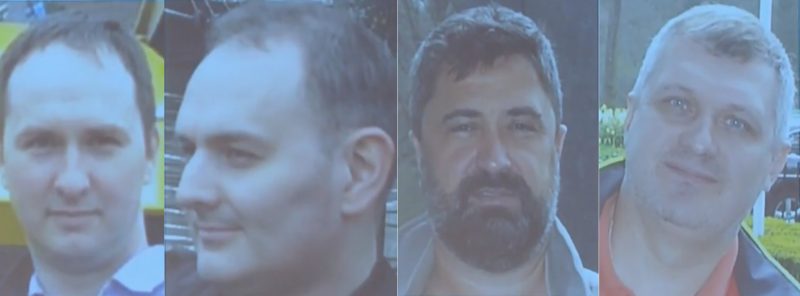
The four men used various antennae, laptops, mobile phones, and other equipment to try and breach the OPCW's WiFi network, Eichelsheim said (details of what Dutch officials said are taken from the Reuters news agency, which translated the remarks).
They failed to penetrate the OPCW's network, Dutch defense minister Ank Bijleveld said on Thursday.
Instead, the men were caught red-handed and attempted to destroy some of the equipment to conceal their actions.
They were briefly detained in the Netherlands in April, and then "put on a flight to Moscow" days after their arrival, Bijleveld said.
They had planned to travel on to a laboratory in Spiez, Switzerland, that was testing samples of the nerve agent that poisoned Skripal, Eichelsheim said.
They were not immediately prosecuted because the case was considered military- and not police-related.
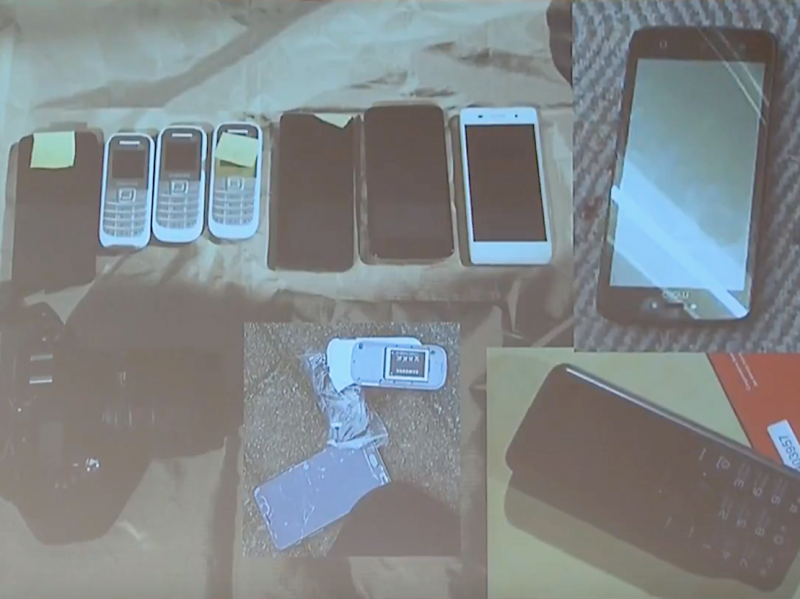
How the hack went down
Here were the suspects' movements, according to the BBC, whose reporters attended the press conference:
- On April 10, the suspects traveled from Moscow to Amsterdam with diplomatic passports, were escorted out of Schipol international airport by a member of the Russian embassy.
- They then hired a car and drove around the OPCW's headquarters in The Hague on April 11 and 12 for a reconnaissance trip.
- Equipment stashed in the trunk of their car, including a computer and WiFi panel and antenna, were used to intercept people's logins.
- The antenna was pointed directly at the OPCW, BBC security correspondent Gordon Corera tweeted.
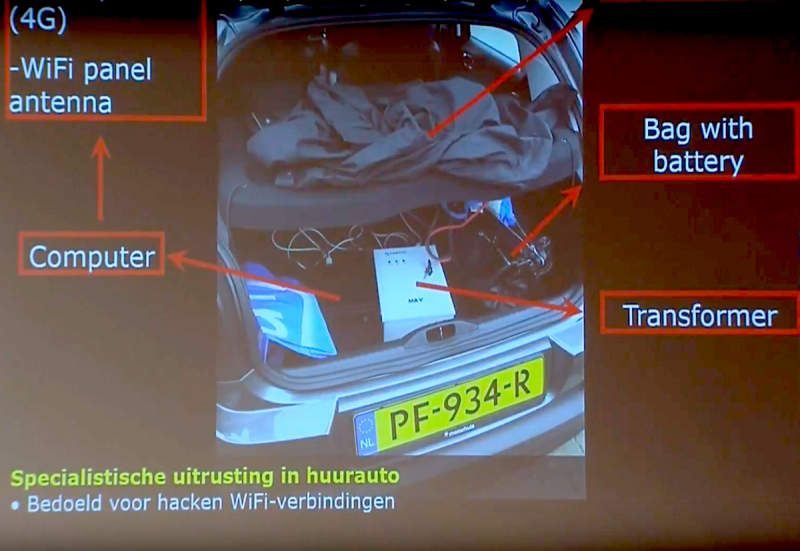
How they were caught
When the equipment was turned on, the OPCW detected a threat, and the four agents were arrested, the BBC reported.
Dutch officials were sure that the men were suspicious because upon being stopped they tried to destroy one of the cellphones they were carrying, the BBC said. They also carried a large amount of cash, and tried to remove litter from their hotel to cover up their tracks.
The Netherlands then determined that they were agents of the GRU, Russia's military intelligence service, after finding that one of their phones was activated near the GRU building in Moscow, and discovering a receipt for a taxi journey from a street near the GRU to the Moscow airport, the BBC reported.
One of the laptops that was seized was also found to have targeted the investigation into the downing of Malaysian Airlines flight MH17 over eastern Ukraine in 2014, the BBC reported.
MH17 took off from Amsterdam, many of its passengers were Dutch, and the Dutch government has formally accused Russia of involvement.
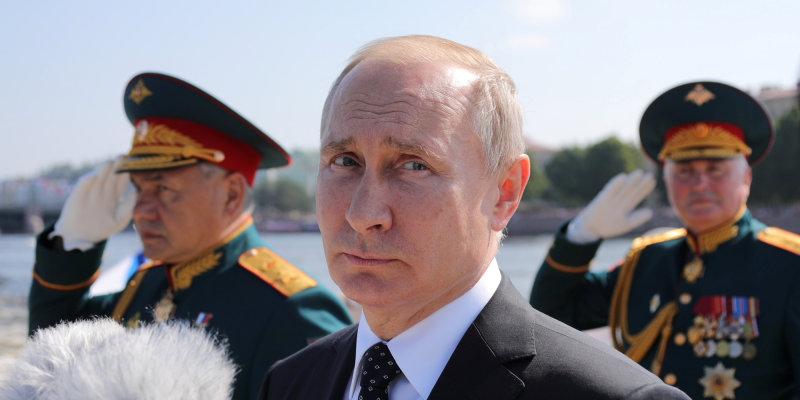
A "diabolical perfume cocktail" of allegations
A spokeswoman for Russia's Foreign Ministry called the Thursday announcement a "diabolical perfume cocktail" of allegations by someone with a "rich imagination," Reuters reported.
The state-run Sputnik News agency also quoted an unnamed source from the Russian foreign ministry as saying: "There were no attacks and there can not be any."
"This is related to the common, extinct, obscene policy of some Western states," the source said. "Why should we hack anything? We have access, the entire network is open to us. This is yet another nonsense."
The Kremlin has also vehemently denied being involved in the nerve agent attack against Skripal earlier this year. Britain accused two Russian men of carrying out the attack, one of whom has since been identified as a highly-decorated officer of the GRU.
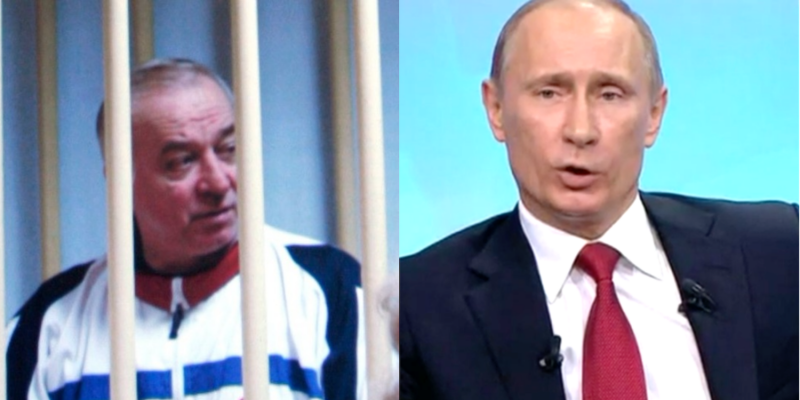
The US Department of Justice is expected to issue indictments of the four suspects later on Thursday, Reuters reported the Dutch defense minister as saying.
Earlier this year two Russian intelligence agents were reportedly arrested while allegedly going to a lab in Switzerland that was testing samples of the nerve agent that poisoned Skripal.
It is not clear whether this was part of the same operation as the one detailed by the Dutch on Thursday.
Ruqayyah Moynihan contributed reporting to this article.

